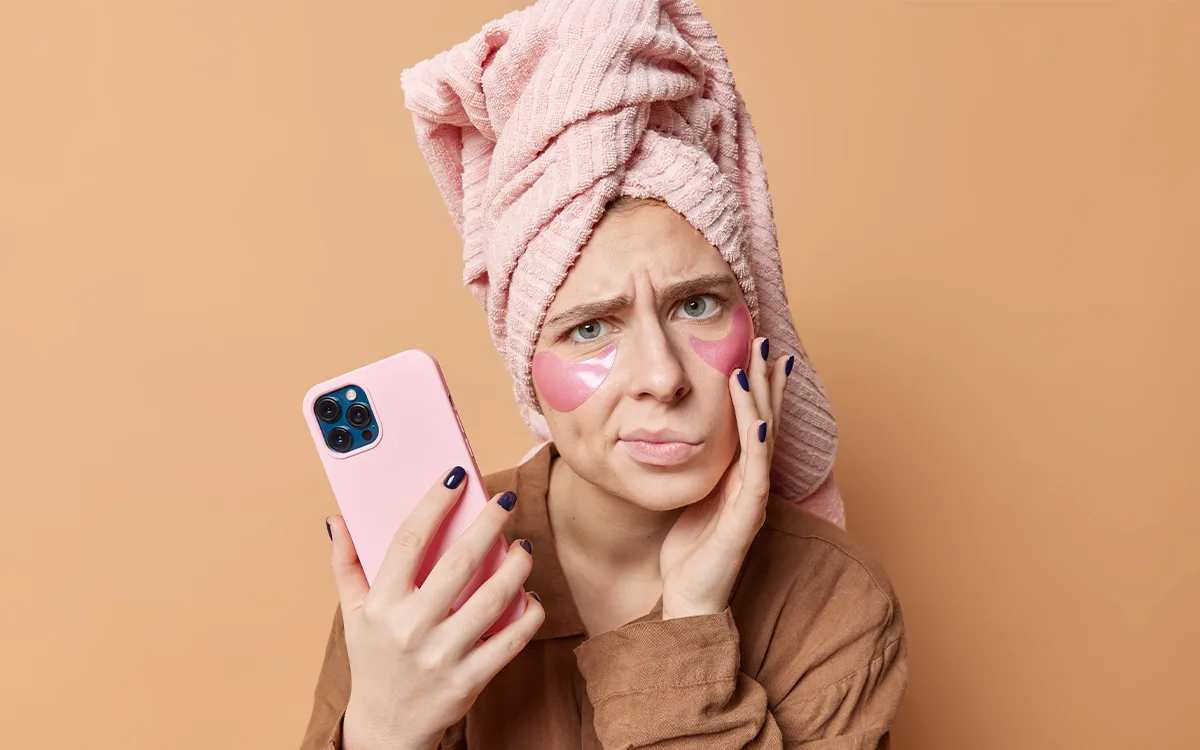Most of us spend hours each day in front of screens—phones, laptops, tablets, and TVs. While many are aware of the effects of screen time on our eyes and sleep, fewer people talk about its possible impact on skin health. A lot of buzz has been going around about blue light—a type of high energy visible (HEV) light—and its connection to skin damage. But how much of it is true? And should you really be concerned about it?
This blog breaks it down in simple words to help you understand what blue light is, how it might affect your skin, and what steps can help support your skin’s natural balance.
What Is Blue Light and Where Does It Come From?
Blue light is a type of visible light with a short wavelength and high energy. It is part of the light spectrum that is closest to ultraviolet (UV) rays. While the sun is the main source of blue light, it is also emitted by digital devices like smartphones, laptops, and LED lighting.
Compared to UV rays, blue light is not as strong, but because of our growing screen habits, our exposure to artificial blue light has increased. This has led to concerns about its effects on skin cells over time.
How Can Blue Light Affect Skin Cells?
Recent studies suggest that blue light exposure may stress skin cells, especially with extended screen time. Research has shown that blue light can reach deeper layers of the skin, just like UVA rays from the sun.
Some potential effects include:
- Skin tone changes: Blue light may affect melanin production, leading to dark spots or uneven skin tone, especially in people with darker skin tones.
- Collagen breakdown: Overexposure might influence the skin’s ability to maintain firmness, which could show up as dullness or early signs of aging.
- Dryness and discomfort: Long screen exposure could affect your skin’s natural barrier, making it feel tired or dry.
While more research is needed, especially on the effects of device-emitted blue light versus sunlight, many skin experts agree that being mindful of screen exposure is helpful.
How Can You Help Your Skin Stay Healthy Around Blue Light?
You do not need to fear screens, but there are smart ways to help maintain your skin’s natural balance when spending long hours with devices.
- Limit screen time: Take breaks using the 20-20-20 rule—every 20 minutes, look at something 20 feet away for 20 seconds. This helps not only your eyes but gives your skin a break too.
- Use blue light filters: Most phones and laptops now come with blue light filters or “night mode” settings that lower HEV light.
- Apply mineral-based SPF: Products with zinc oxide or titanium dioxide can help shield your skin, especially if you work under bright indoor lighting or near windows.
- Keep your skincare simple: Look for ingredients like vitamin C or E, which may help support your skin’s natural renewal process.
- Stay hydrated: Drinking enough water helps maintain skin softness and comfort, especially during long hours indoors.
What About Screen Light vs Sunlight?
Sunlight is still the largest source of blue light. In fact, spending a few minutes in sunlight can expose your skin to more HEV light than hours of screen time. However, device use is more consistent and closer to the face, making it more targeted.
So, while the sun might be stronger, your screens are more frequent. It is the constant exposure that might contribute to gradual effects on skin health. That is why it makes sense to balance both—wear broad-brimmed hats outdoors and keep screens at a reasonable distance indoors.
Can All Skin Types Be Affected the Same Way?
Skin response can vary depending on type and tone. For instance:
- Oily or acne-prone skin might feel more reactive with long screen use.
- Sensitive skin may show signs of dryness or patchiness.
- Darker skin tones are more likely to notice discoloration or changes in pigmentation over time.
That said, anyone spending long hours in front of screens may benefit from being mindful of their skin and environment.
Conclusion
So, can blue light really cause skin damage? The answer is: possibly, over time, and especially when exposure is frequent and close. While device-emitted blue light may not be as strong as UV rays, your skin is still coming into contact with it every day.
Supporting your skin health does not mean giving up your devices. It simply means being aware, taking breaks, using screen filters, and giving your skin the care it needs to stay balanced. Simple steps like limiting screen time and maintaining a gentle skincare routine can go a long way in helping your skin stay fresh and comfortable
Checkout This Blog: Is Pineapple the Secret to Healthier-Looking Skin?

